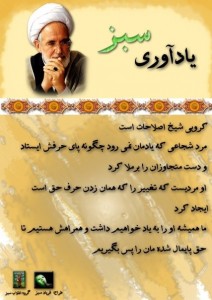Friday
Sep182009
Iran's Qods Day: The Participants Speak
 Friday, September 18, 2009 at 19:41
Friday, September 18, 2009 at 19:41
The Latest from Iran (18 September): Qods Day
NEW Iran Video: Qods Day Protests (18 September)
Receive our latest updates by email or RSS SUBSCRIBE TO OUR FEED
Buy Us A Cup of Coffee? Help Enduring America Expand Its Coverage and Analysis
 An EA source brings us first-hand testimony from his relatives, who were in five different locations across Tehran today:
An EA source brings us first-hand testimony from his relatives, who were in five different locations across Tehran today:
1. The number of Green Movement was much higher than the supporters of Ahmadinejad. Bear in mind that some people were scared to carry a Green symbol. Ahmadinejad supporters were shocked indeed, seeing all these people.
2. For the first time in the history of the Islamic Revolution, the main parts of the opposition group were from the religious and revolutionary people.
3. The presence of women and youth were much higher than on previous occasions.
4. For the first time many people who came to the rally didn’t go to the Friday prayers. Even though speakers were inviting people to go to the prayers, some took part and some ignored it, in contrast to what happened with the Friday prayers which Hashemi Rafsanjani led.
5. It was the first time that police attack demonstrators who were fasting with tear gas. (Tear gas, if it is breathed in, will break the Ramadan fast.)
6. For the first, IRIB broadcast rallies in other cities than Tehran, and a few images from Tehran were in close-up shot.
7. When Ahmadinejad had a short live interview after his speech with IRIB Channel 2 in front of Tehran University, you could hear the protestors shouting, “Ahmadi, Ahmadi, resign, resign!”
8. On some Government buildings and on the public buses, demonstrators had sprayed green slogans in support of Mousavi and the Green Movement.
9. People were showing their support for Mousavi and Karrubi with no fear of IRIB’s cameras and those of the police and the intelligence services.
10. Young supporters of Green Movement had decided to go to Azadi stadium to carry on their protests tonight, as the football team of Ali Karimi and Hussain Ka’abi was playing (both are supporters of green movement).
NEW Iran Video: Qods Day Protests (18 September)
Receive our latest updates by email or RSS SUBSCRIBE TO OUR FEED
Buy Us A Cup of Coffee? Help Enduring America Expand Its Coverage and Analysis
 An EA source brings us first-hand testimony from his relatives, who were in five different locations across Tehran today:
An EA source brings us first-hand testimony from his relatives, who were in five different locations across Tehran today:1. The number of Green Movement was much higher than the supporters of Ahmadinejad. Bear in mind that some people were scared to carry a Green symbol. Ahmadinejad supporters were shocked indeed, seeing all these people.
2. For the first time in the history of the Islamic Revolution, the main parts of the opposition group were from the religious and revolutionary people.
3. The presence of women and youth were much higher than on previous occasions.
4. For the first time many people who came to the rally didn’t go to the Friday prayers. Even though speakers were inviting people to go to the prayers, some took part and some ignored it, in contrast to what happened with the Friday prayers which Hashemi Rafsanjani led.
5. It was the first time that police attack demonstrators who were fasting with tear gas. (Tear gas, if it is breathed in, will break the Ramadan fast.)
6. For the first, IRIB broadcast rallies in other cities than Tehran, and a few images from Tehran were in close-up shot.
7. When Ahmadinejad had a short live interview after his speech with IRIB Channel 2 in front of Tehran University, you could hear the protestors shouting, “Ahmadi, Ahmadi, resign, resign!”
8. On some Government buildings and on the public buses, demonstrators had sprayed green slogans in support of Mousavi and the Green Movement.
9. People were showing their support for Mousavi and Karrubi with no fear of IRIB’s cameras and those of the police and the intelligence services.
10. Young supporters of Green Movement had decided to go to Azadi stadium to carry on their protests tonight, as the football team of Ali Karimi and Hussain Ka’abi was playing (both are supporters of green movement).

 Enduring America's Mr Smith prepares for today:
Enduring America's Mr Smith prepares for today: 2055 GMT: Reports that writer and blogger Ali Pirhousienlou and hsi wife Fatemeh Sotoudeh have been arrested.
2055 GMT: Reports that writer and blogger Ali Pirhousienlou and hsi wife Fatemeh Sotoudeh have been arrested.
 Maryam at Keeping the Change
Maryam at Keeping the Change 